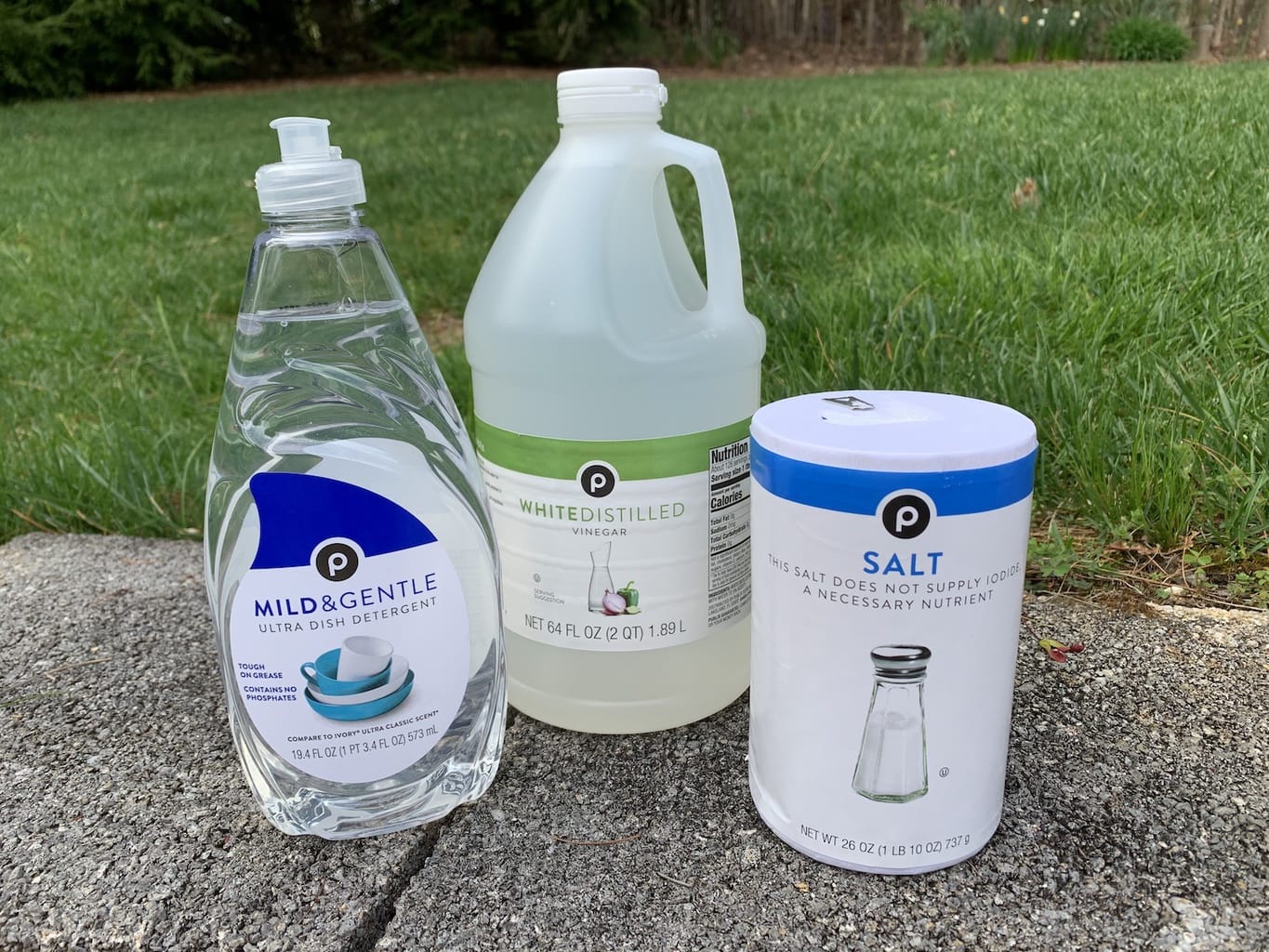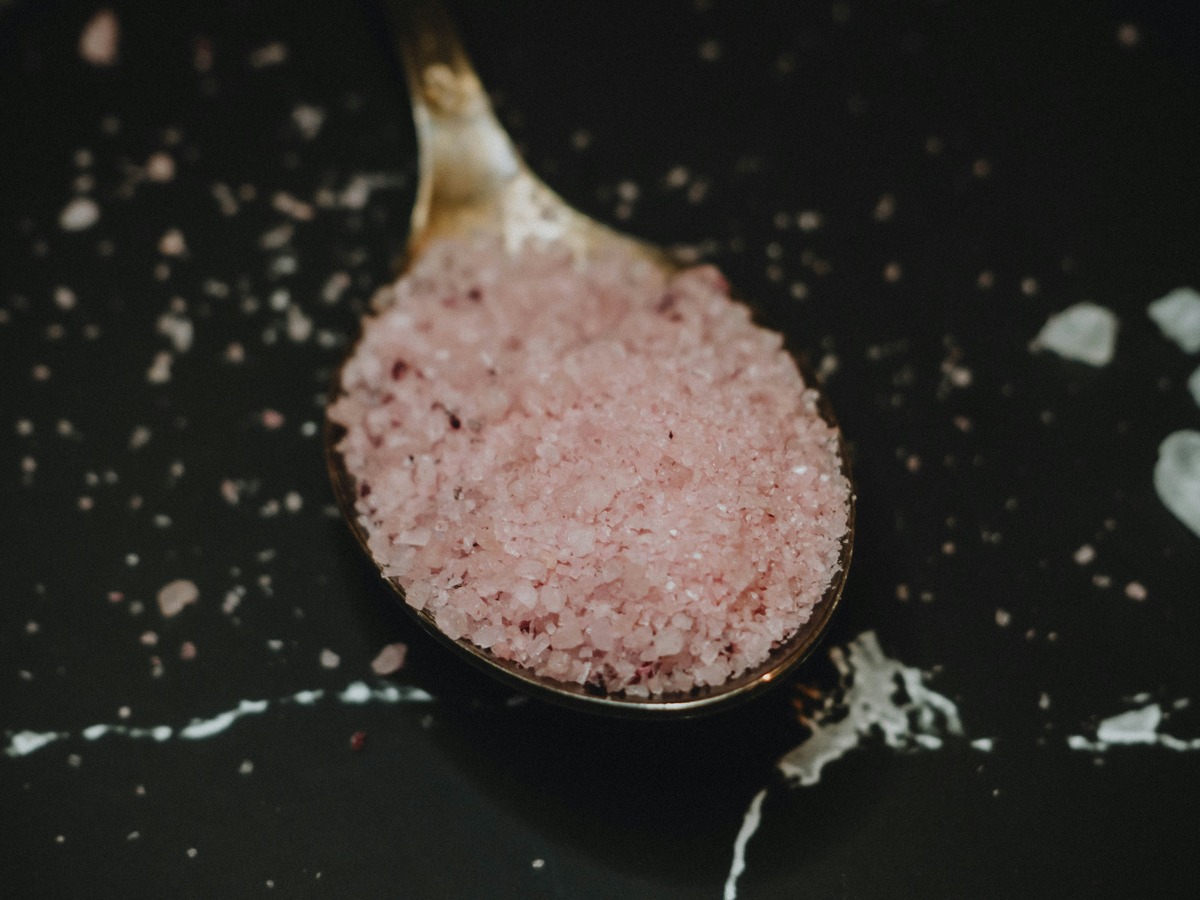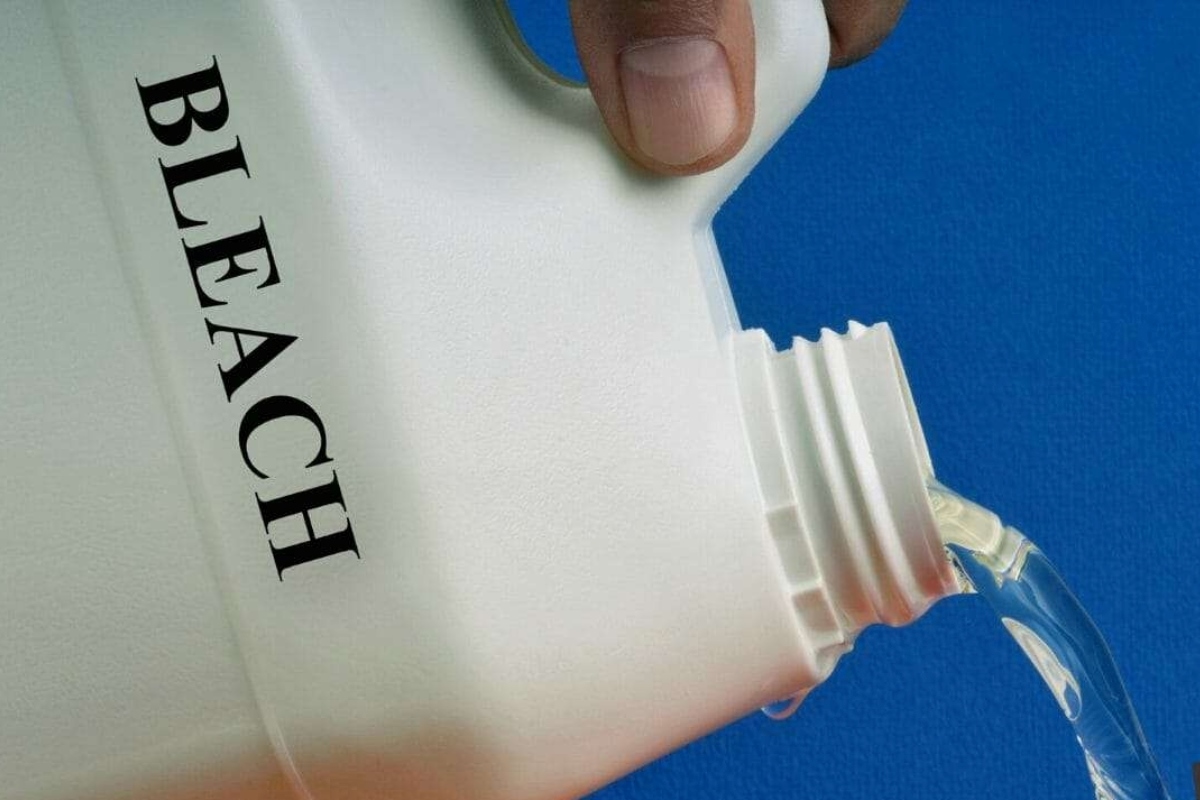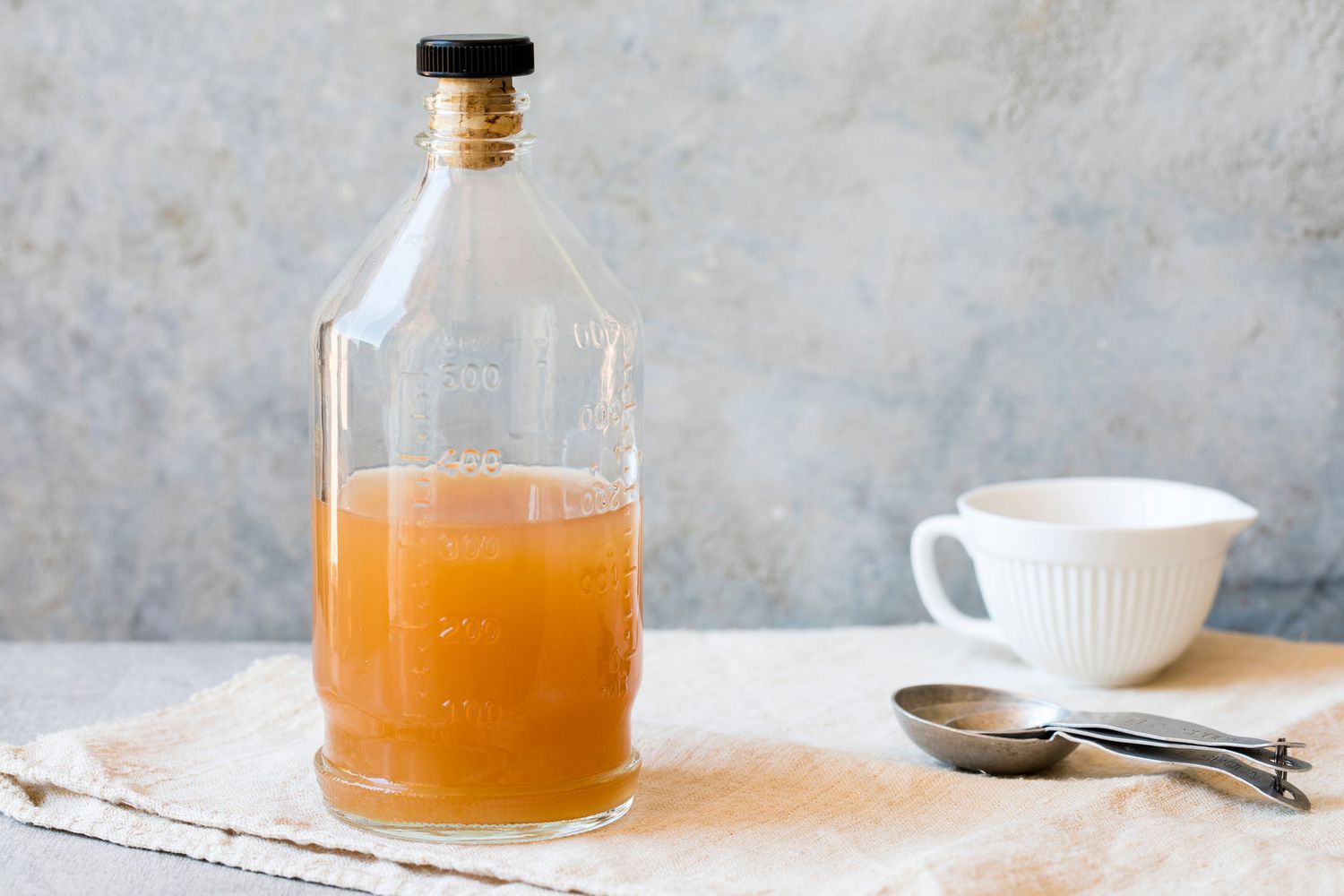Home>Home and Garden>Using Salt And Vinegar As An Ant Killer: Effective Or Not?


Home and Garden
Using Salt And Vinegar As An Ant Killer: Effective Or Not?
Modified: March 7, 2024
Discover if using salt and vinegar as an ant killer is effective for your home and garden. Learn about this natural remedy's benefits and potential drawbacks.
(Many of the links in this article redirect to a specific reviewed product. Your purchase of these products through affiliate links helps to generate commission for Noodls.com, at no extra cost. Learn more)
Table of Contents
Introduction
Ant infestations can be a persistent nuisance in many households, often requiring effective and safe methods for eradication. While there are numerous commercial ant killers available, some individuals prefer natural alternatives for pest control. One such method that has gained attention is the use of salt and vinegar as ant killers. This approach is appealing to those seeking environmentally friendly and non-toxic solutions for managing ant invasions.
The combination of salt and vinegar as an ant killer has sparked curiosity due to the common presence of these household items. Both salt and vinegar are readily available in most kitchens, making them convenient options for individuals who prefer do-it-yourself pest control solutions. Moreover, the idea of using natural ingredients to combat ant infestations aligns with the growing interest in eco-friendly practices and reducing reliance on chemical-based products.
As we delve into the effectiveness of salt and vinegar as ant killers, it's important to consider the practicality and potential limitations of this approach. While natural remedies can be appealing, it's essential to evaluate their efficacy and safety to determine whether they offer a viable solution for managing ant infestations. In the following sections, we will explore the effectiveness of salt and vinegar as ant killers, provide insights on how to use them to get rid of ants, and discuss potential risks and considerations associated with this method.
The Effectiveness of Salt and Vinegar as Ant Killers
The effectiveness of salt and vinegar as ant killers has been a topic of interest for individuals seeking natural and non-toxic solutions for pest control. Both salt and vinegar are commonly found in households and are known for their diverse applications, including culinary uses and cleaning purposes. When combined, these two ingredients are believed to possess ant-repelling properties, making them a potential remedy for addressing ant infestations.
Vinegar, particularly white vinegar, is renowned for its acidic nature, which can disrupt the scent trails that ants use to navigate and communicate with one another. This disruption can disorient the ants and deter them from entering specific areas, making vinegar an appealing option for individuals looking to repel ants without resorting to chemical-based products. Additionally, the strong odor of vinegar is thought to mask the scent of food and other attractants, further discouraging ants from foraging in treated areas.
Salt, on the other hand, is known for its desiccating properties. When sprinkled along ant trails or entry points, salt can absorb moisture from the ants' bodies, leading to dehydration and eventual demise. This method is believed to be effective in deterring ants and disrupting their foraging patterns, making it a potential natural deterrent for ant infestations.
While the individual properties of salt and vinegar suggest their potential effectiveness in repelling and eliminating ants, it's important to acknowledge that their impact may vary depending on the type of ant species and the extent of the infestation. Additionally, the application method and concentration of the salt and vinegar solution can influence their efficacy in managing ant populations.
Furthermore, it's essential to recognize that the use of salt and vinegar as ant killers may not provide immediate or comprehensive eradication of ant colonies. In cases of severe infestations, professional pest control services or alternative ant management strategies may be necessary to achieve long-term relief from ant-related issues.
In summary, the effectiveness of salt and vinegar as ant killers is rooted in their potential to disrupt ant behavior and physiology through their respective properties. While these natural ingredients may offer a degree of deterrence and localized control over ant infestations, their limitations and variability in efficacy should be considered when evaluating their suitability for addressing pest issues.
How to Use Salt and Vinegar to Get Rid of Ants
Using salt and vinegar to get rid of ants involves a strategic approach to leverage the repelling and desiccating properties of these household ingredients. Here's a step-by-step guide on how to effectively utilize salt and vinegar in managing ant infestations:
-
Identify Ant Trails and Entry Points: Begin by observing the ants' movement patterns and identifying their trails and entry points into your living spaces. Common areas where ants enter include cracks in walls, gaps around windows and doors, and openings around plumbing fixtures.
-
Prepare a Salt and Vinegar Solution: In a clean spray bottle, mix equal parts of white vinegar and water. This diluted vinegar solution serves as a potent ant repellent due to its acidic nature. Additionally, prepare a separate mixture of salt and water to create a salt solution for targeted application.
-
Apply Vinegar Solution to Ant-Prone Areas: Thoroughly spray the diluted vinegar solution along ant trails, entry points, and areas where ants are frequently observed. The acidic nature of vinegar disrupts the ants' scent trails and deters them from foraging in treated areas. Reapply the solution as needed, especially after cleaning or when the scent diminishes.
-
Use Salt Solution for Direct Application: Sprinkle the salt solution directly onto ant trails and entry points. The desiccating properties of salt can dehydrate the ants and impede their movement. Focus on areas where ants congregate, such as kitchen countertops, pantry shelves, and baseboards.
-
Monitor and Reapply as Necessary: Continuously monitor the treated areas for ant activity. Reapply the salt and vinegar solutions as needed to maintain their deterrent effects. Additionally, consider sealing off entry points and addressing potential sources of attraction, such as food crumbs and spills, to enhance the effectiveness of the salt and vinegar treatment.
-
Combine with Other Preventive Measures: While using salt and vinegar can help manage existing ant infestations, integrating other preventive measures, such as proper food storage, regular cleaning, and sealing cracks and crevices, can contribute to long-term ant control.
By following these steps and consistently applying the salt and vinegar solutions, you can leverage their natural properties to deter ants and create an inhospitable environment for their presence. However, it's important to note that the effectiveness of this method may vary based on the specific ant species and the extent of the infestation. For severe or persistent ant problems, consulting with pest control professionals may be necessary to implement comprehensive solutions.
Potential Risks and Considerations
While the use of salt and vinegar as ant killers offers a natural and non-toxic approach to pest control, it's essential to be mindful of potential risks and considerations associated with this method. Understanding the limitations and implications of using salt and vinegar to manage ant infestations can help individuals make informed decisions and ensure the safety of their living environments.
Impact on Surfaces and Materials
One consideration when using salt and vinegar as ant killers is their potential impact on various surfaces and materials within the home. Undiluted vinegar, in particular, can be acidic and may cause damage to certain surfaces such as natural stone countertops, marble floors, and unsealed grout. It's important to test the salt and vinegar solutions on inconspicuous areas before widespread application to assess their compatibility with different materials. Additionally, using diluted vinegar and promptly wiping off excess salt solution can mitigate the risk of adverse effects on surfaces.
Pet and Child Safety
While salt and vinegar are generally considered safe for use in households, it's crucial to consider the safety of pets and children when implementing these natural ant control methods. Ingesting large quantities of salt can be harmful to pets, particularly dogs, leading to electrolyte imbalances and dehydration. Therefore, it's advisable to apply salt solutions in areas inaccessible to pets and to use caution when using salt as an ant deterrent. Similarly, while diluted vinegar is non-toxic, its strong odor may be off-putting to some pets. Ensuring proper ventilation during and after application can help minimize any discomfort for animals and children.
Effectiveness and Persistence
Another consideration pertains to the effectiveness and persistence of salt and vinegar as ant killers. While these natural ingredients may deter ants and disrupt their foraging patterns, their impact may be temporary, especially in the presence of large ant colonies or multiple entry points. Ants are resilient and adaptable creatures, and their behavior can evolve in response to environmental changes. Therefore, relying solely on salt and vinegar solutions may not provide a comprehensive and long-term solution for managing persistent ant infestations.
Alternative Pest Control Methods
Considering the potential limitations of salt and vinegar as ant killers, it's important to explore alternative pest control methods for addressing ant infestations. Integrated pest management approaches, which combine preventive measures, habitat modification, and targeted treatments, can offer a holistic and sustainable strategy for managing ants and other pests. Additionally, consulting with professional pest control services can provide tailored solutions based on the specific ant species and the severity of the infestation.
In summary, while salt and vinegar offer natural and accessible options for addressing ant infestations, it's crucial to consider their potential impact on surfaces, the safety of pets and children, as well as their effectiveness in providing long-term relief from ant-related issues. By weighing these risks and considerations, individuals can make informed decisions and implement comprehensive pest management strategies that align with their specific needs and living environments.
Conclusion
In conclusion, the use of salt and vinegar as ant killers presents a natural and accessible approach to managing ant infestations. The repelling and desiccating properties of vinegar and salt, respectively, offer potential deterrent effects against ants, making them appealing options for individuals seeking non-toxic pest control solutions. By disrupting ant scent trails and impeding their movement, salt and vinegar can create an inhospitable environment for ants, contributing to localized ant control within households.
However, it's important to approach the use of salt and vinegar with a balanced perspective. While these natural ingredients may offer a degree of deterrence and localized control over ant infestations, their effectiveness may vary based on factors such as the specific ant species, the extent of the infestation, and environmental conditions. Additionally, the potential impact on surfaces, the safety of pets and children, and the persistence of their effects should be carefully considered when implementing salt and vinegar as ant killers.
Furthermore, it's crucial to recognize that the use of salt and vinegar as ant killers may not provide a comprehensive and long-term solution for managing persistent ant infestations. In cases of severe infestations or recurring ant problems, integrating salt and vinegar treatments with other preventive measures and seeking professional pest control services may be necessary to achieve sustained relief from ant-related issues.
Ultimately, while salt and vinegar offer natural and accessible options for addressing ant infestations, it's important for individuals to weigh their potential benefits and limitations. By considering the practicality, safety, and effectiveness of salt and vinegar treatments, individuals can make informed decisions and implement comprehensive pest management strategies that align with their specific needs and living environments. Whether used as a standalone approach for minor ant issues or as part of an integrated pest management strategy, salt and vinegar can contribute to a holistic and environmentally conscious approach to ant control within residential settings.














